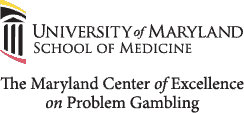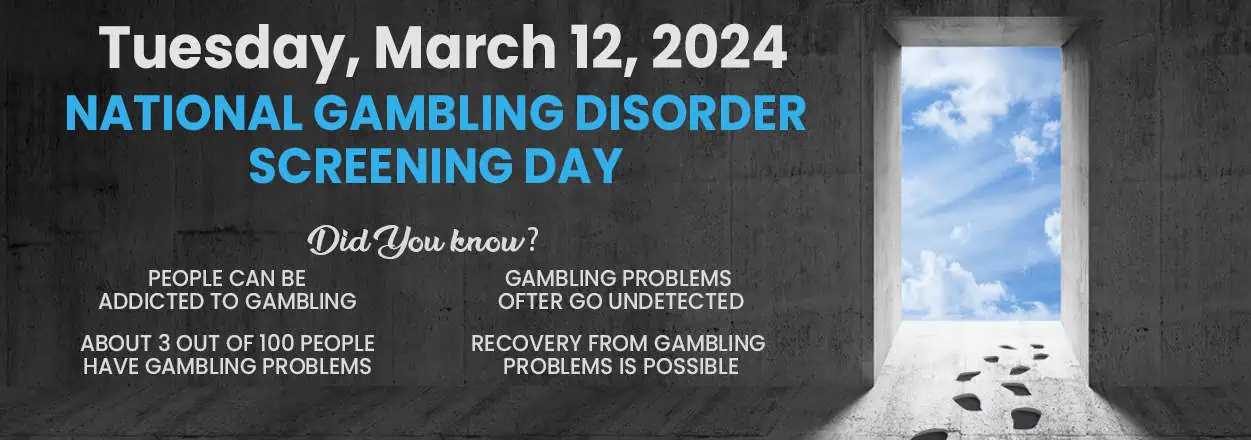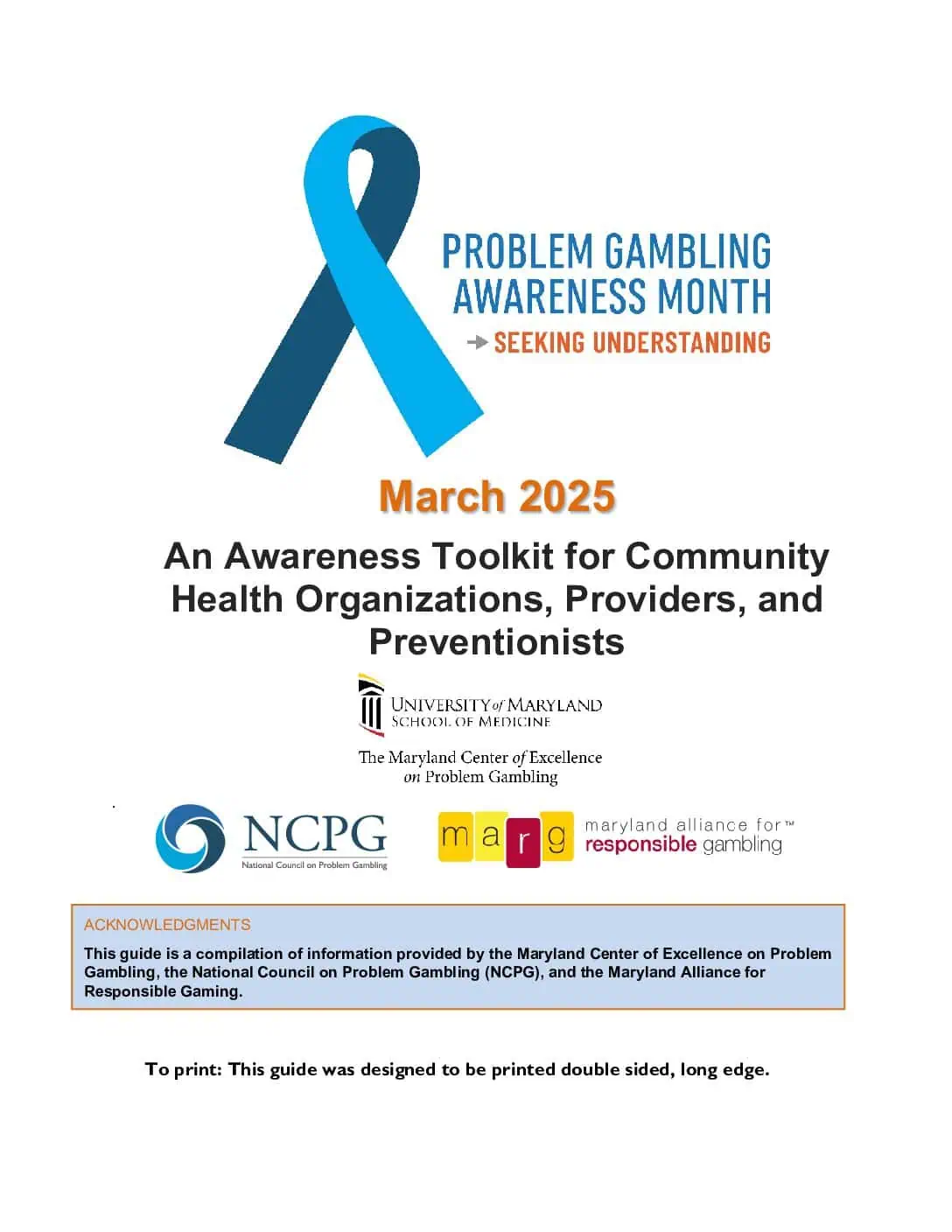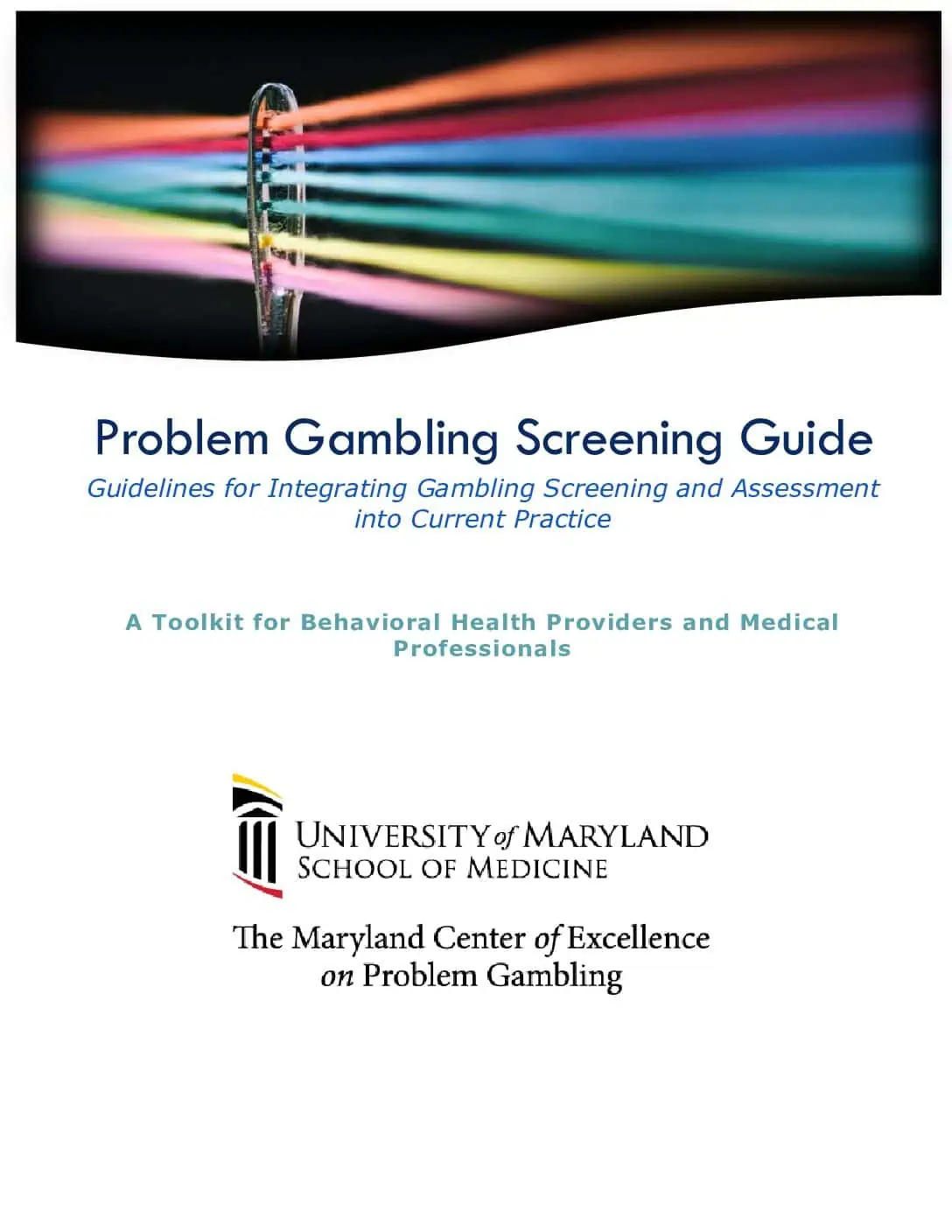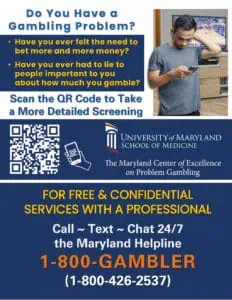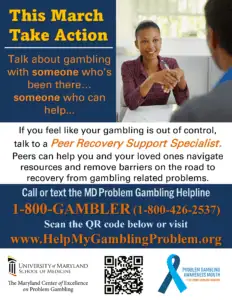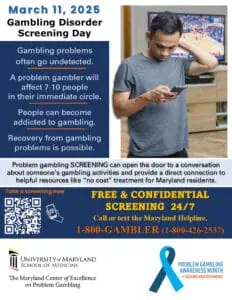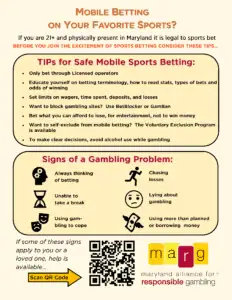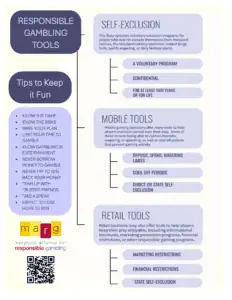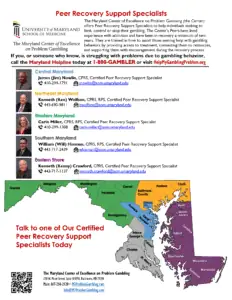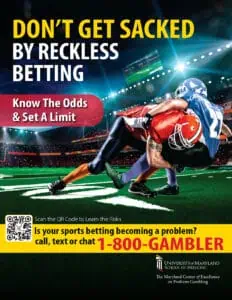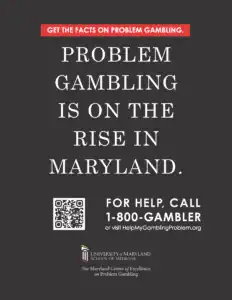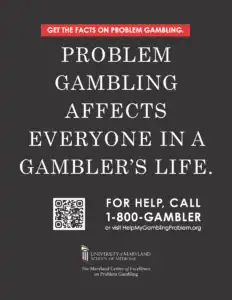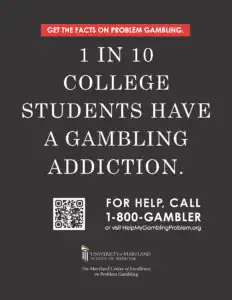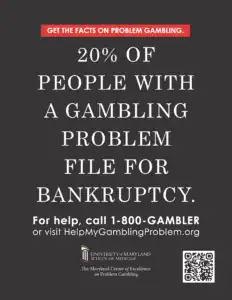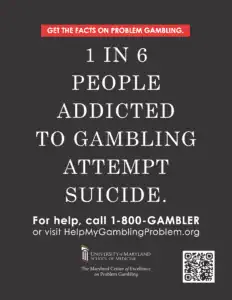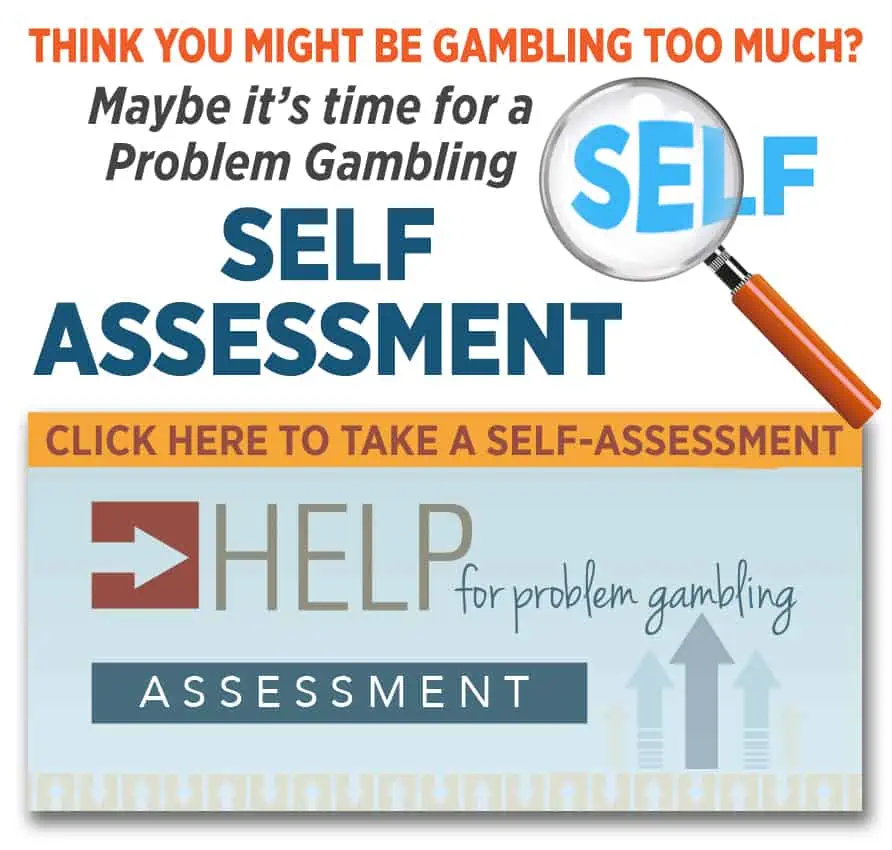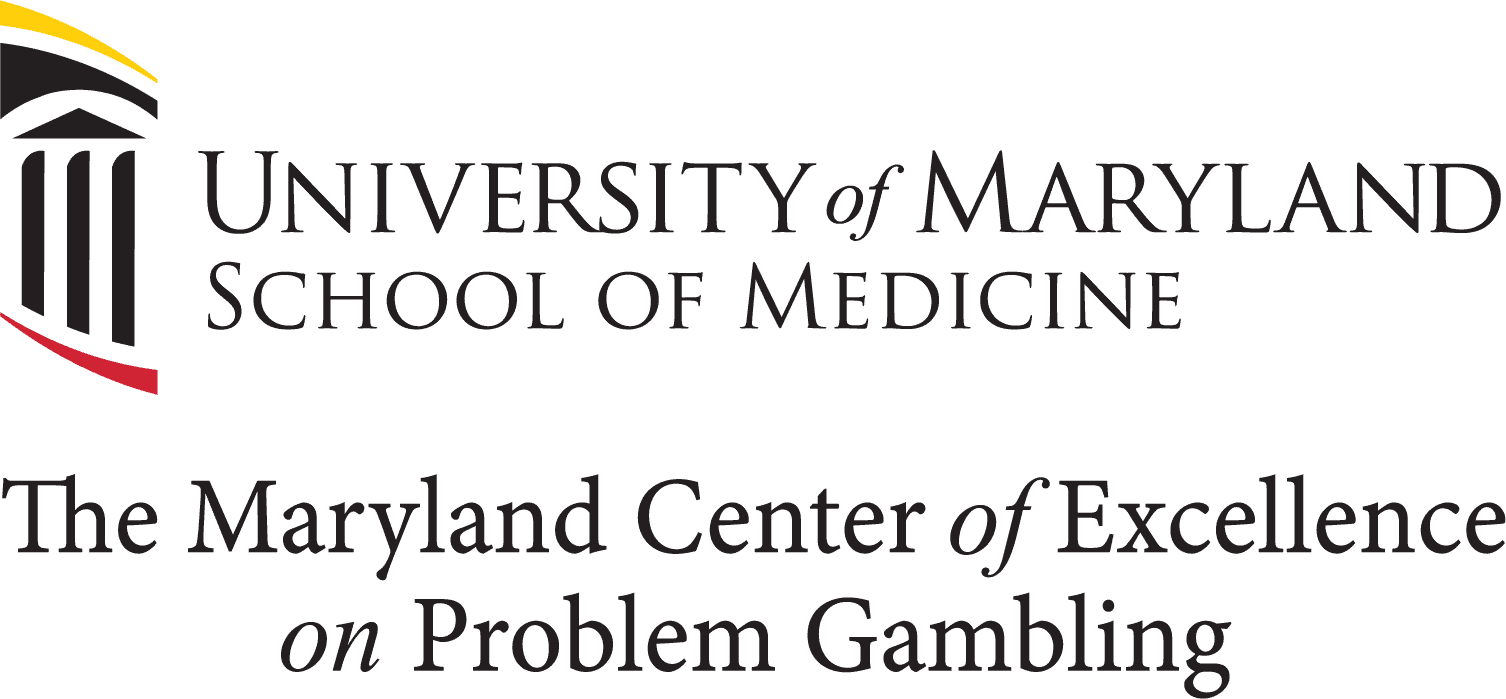The Maryland Center of Excellence on Problem Gambling (the Center) is committed to increasing the capacity of mental health/behavioral health care treatment and prevention programs to address gambling, problem gambling and gambling disorder through enhanced screening, assessment, awareness, intervention, recovery and health promotion strategies, and to make the impact of gambling behaviors on recovery, health and well-being a relevant topic of conversation within communities and organizations. Screening, although not a diagnosis, helps to identify individuals who should seek further assessment for potential gambling-related problems.
Problem Gambling Awareness Month 2025
An Awareness Toolkit for Community Health Organizations, Providers and Preventionists
A Screening Guide for Behavioral Health Providers
The PGAM screening guide was developed to encourage healthcare providers to screen clients for problem gambling. This guide provides the tools and resources to integrate the screening of Problem Gambling/Gambling Disorder into your agency’s current processes and protocols.
GAMBLING: the act of risking something of value, including money and property, on an activity that has an uncertain outcome.
Defining Gambling Clinical Terms:
- Recreational Gambler: Someone who is able to maintain control over amounts of time and money spent gambling and who does not experience any adverse effects from gambling.
- At Risk Gambler: Someone who is at risk for becoming a problem or patholigical gambler because:
- they evidence some adverse consequence(s) from gambling but no symptoms of loss of control; OR
- they evidence some symptoms of loss of control but no adverse consequences: OR
- they evidence some adverse consequences and loss of control, but not at a level sufficient to meet criteria for problem or pathological gambling; OR
- they have a gambling frequency and/or expenditure that is significantly above average (especially in the context of their employement status, income, and debt).
- Problem Gambling: Characterized by difficulties in limiting money and/or time spent on gambling (impaired control) which leads to adverse consequences for the gambler, others, or for the community. (Neal, 2005). This has never been an official diagnostic category.
- Gambling Disorder: Current DSM-V diagnosis. (DSM-V description included in this Guide).
- Pathological Gambling: DSM-IV diagnosis.
- Compulsive Gambling: Terminology used in Gamblers Anonymous and commonly in non-clinical settings and contexts.
Why address Gambling Behavior in Substance Use and Mental Health Programs?
- Individuals with Substance use and mental health disorders are at higher risk for having a gambling problem.
- Gambling (even at moderate levels) may have an adverse impact on health and treatment outcomes.
- Unaddressed gambling and gambling problems are likely to add to treatment costs and service utilization.
- Gambling may become an addiction for individuals recovering from substance use disorder.
- Gambling can be a relapse risk factor.
- Gambling and problem gambling may exacerbate psychiatric symptoms. Relationship violence and child abuse are correlated with problem gambling and severely aggravated if substance use is involved.
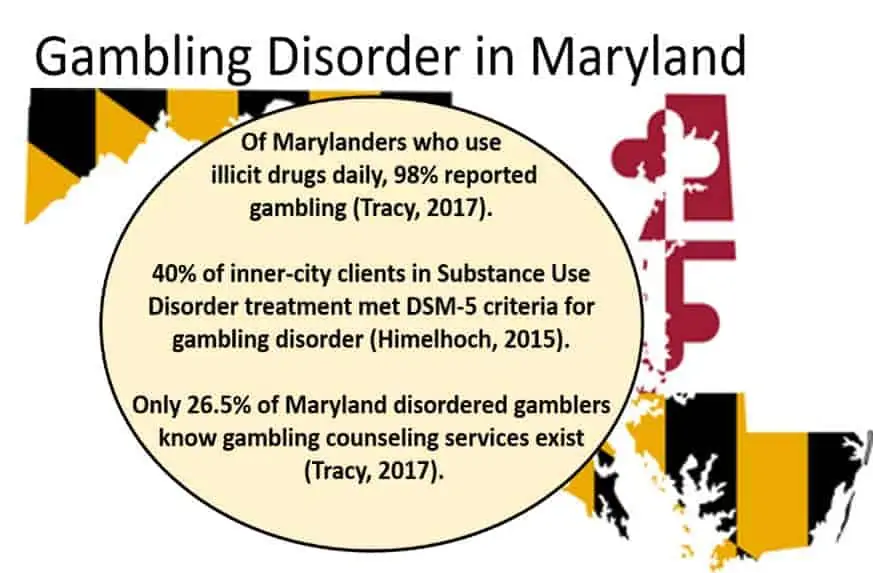
SCREEN for Problem Gambling/Gambling Disorder
Why Screen:
- Problem Gambling/Gambling Disorder can lead to financial, emotional, social, occupational, and physical harms.
- An individual struggling with issues due to problematic gambling will affect 7-10 people in their immediate circle.
- Continual problem gambling may lead to criminal activity to compensate for losses.
Why Screen:
- Open the conversation about gambling.
- Increase curiosity.
- Begin to make connections between gambling and other major life areas.
CLICK HERE for additional resources designed for mental health and behavioral health providers.
Types of Gambling
- Bingo
- Card/table games
- Horse betting
- Internet gambling (poker/bingo sites)
- Lottery games, scratch offs
- Other games (betting on pool, bowling)
- Raffle tickets
- Slot machines/VLT’s
- Sports Betting
- Stock market speculation
